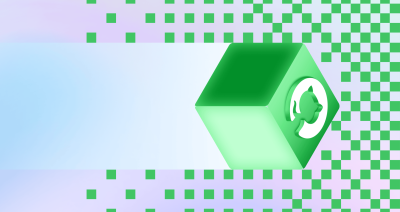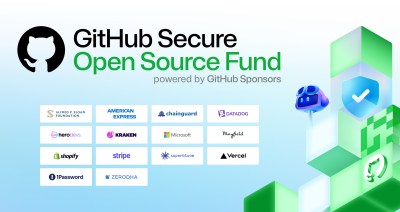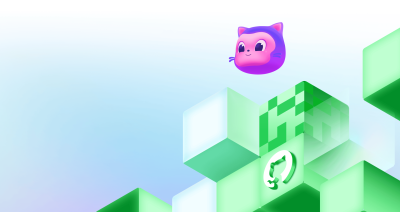Open Source Monthly: June 2022 Edition
June’s Open Source Monthly features Modos–a community-focused company building software and hardware that designs digital devices with respect for users’ time, attention, and well-being.

I hope you enjoyed the May edition of Open Source Monthly, which showcased Sharing Excess, a project solving food scarcity with food surplus, and Mulheres no mundo da tecnologia, a non-code project written in Portuguese. This month, I’m exploring an often overlooked topic within open source–open hardware. While open source software makes source code accessible to everyone, open hardware allows individuals and organizations to use, modify, and view schematics, blueprints, logic designs, and Computer Aided Design (CAD) drawings under the correct licenses.
According to Opensource.com, open hardware is “a set of design principles and legal practices, not a specific type of object. The term can, therefore, refer to any number of objects—automobiles, chairs, computers, robots or even houses.” Check out the Open Hardware Association to learn more about open hardware.
My favorite project this month is an open hardware project known as the world’s first E-Ink laptop.
Open source project of the month: Modos
Modos is a project, community, and company focused on software and hardware that designs digital devices with respect for users’ time, attention, and well-being. The community’s first project is the Modos Paper Laptop. The Modos Paper Laptop doesn’t intend to replace gaming laptops or ultrabooks. Instead, it is filling a need in the market for users who:
- Experience eye strain and eye fatigue
- Prefer to work outside without the glare of the sun
- Aim to practice deep work in a “distraction-free” environment
- Are unable to use their laptops due to sensitivity to blue light, among other reasons
The Paper Laptop is built entirely with open source tools, including FreeCAD to develop the chassis, or the outer shell of the laptop, and KiCad, a free software suite for electronic design automation, to design the printed circuit board (PCB). Two other projects are in the works: a Paper Monitor and a Development Board.
The Paper Monitor works as a standalone monitor; the Development Board will enable early adopters to build their own E-Ink applications.

After chatting with the maintainer via Twitter Spaces, I was elated to learn that he envisions the organization will eventually produce an ecosystem of e-ink devices (laptops, monitors, displays, and tablets), enabling users to unplug from technology and live mindfully.
About the maintainer
Outside of his work in open hardware and software, Alexander Soto, fondly known as Flex or Alex, works as an Expert-in-Residence at Resilient Coders, a nonprofit coding bootcamp I attended. Alex recalls helping his brother fix and build computers as one of the reasons he loves technology. However, he’s interested in more than technology–and has a passion for education and social justice.
His interests are evident in his career. He has worked as a labor rights organizer and teacher. He also holds a master’s in Computer Science. In his free time, Alex explores human-computer interaction, humane technology, decentralization, and open-source design. Unfortunately, his hobbies, studies, and occupation require him to sit in front of a device for hours, which causes him to suffer from eye strain and eye fatigue. To remedy this issue, Alex created Modos. You can read his blog posts chronicling his wins and challenges developing E-Ink devices.
How to contribute
To continue bringing this vision to life, the team at Modos is currently solving the following technical challenges:
- Building an open-source electrophoretic display controller (EPDC)
- Constructing the interface of the electronic paper display (EPD)
- Designing a laptop chassis with an aspect ratio of 4:3
- Creating native E-Ink optimized applications
- Low-level implementation of the necessary drivers and development of Wayland protocols
If you’re interested in contributing to this mission, Modos is looking for technologists with various skills:
- UI/UX designers to design for their EPD
- Software engineers with experience in Python, Docker, and TypeScript
- Embedded developers
- FPGA developers with an aptitude for Verilog and common bus architecture
- Mechanical engineers to drive CAD development
If the above roles aren’t suitable for you, there are more ways to help! Modos is aiming to reach an ambitious goal. They hope to have at least 50,000 individuals interested in purchasing their devices and provide feedback within their Community Pilot Program. To get started, fill out their Community Survey and apply to join their Community Pilot Program.
Learn more about getting involved with Modos here. Stay up to date with their progress by following Modos on Twitter and GitHub.
Why I love this project
I love this project because I’m looking forward to working and typing out blog posts on my porch without sun glare. I’m half-kidding. More importantly, it’s exciting to see open source push the envelope of innovation to create accessible devices for people who struggle with eye strain and experience difficulty using modern LCDs. There’s also a bit of sentimental value for me. I feel inspired to know that someone who is from a similar background and community as me is creating a new ecosystem of digital devices.
Star pick of the month: Theater.js
I chatted with GitHub Star and Head of Developer Experience and Education at Remote, Cassidy Williams. Her favorite open source project this month is Theater.js. Theatre.js is a JavaScript animation library with a GUI. It animates the DOM, WebGL, and any other JavaScript variable. Cassidy shared, “Theater lets you make some really cool, high-quality motion graphics, both programmatically and visually! I love how intuitive it is and how open their core team is to talking about their work.”
Thank you, Cassidy, for sharing one of your favorite open source projects with us! ⭐
How to contribute
Check out the website if you’re looking to implement Theater.js into your next project. However, if you want to contribute to this project, read through the repository and contributing guidelines.
Stay in touch!
Are you interested in discovering more open source projects?
- Join me on GitHub’s Twitch on Fridays at 1 pm ET as maintainers show me how to use their open source projects.
- Rewatch past conversations with maintainers on GitHub’s YouTube channel.
- Follow GitHub Community and me on Twitter to stay up to date with my Open Source Friday Twitter Spaces.
- Follow All In, a community dedicated to advancing diversity, equity, and inclusion within open source, on Twitter.
- Explore the events and resources GitHub planned for Maintainer Month.
Stay tuned for our July edition of Open Source Monthly!
Written by
Related posts

What to expect for open source in 2026
Let’s dig into the 2025’s open source data on GitHub to see what we can learn about the future.

Securing the AI software supply chain: Security results across 67 open source projects
Learn how The GitHub Secure Open Source Fund helped 67 critical AI‑stack projects accelerate fixes, strengthen ecosystems, and advance open source resilience.

Welcome to the Eternal September of open source. Here’s what we plan to do for maintainers.
Open source is hitting an “Eternal September.” As contribution friction drops, maintainers are adapting with new trust signals, triage approaches, and community-led solutions.